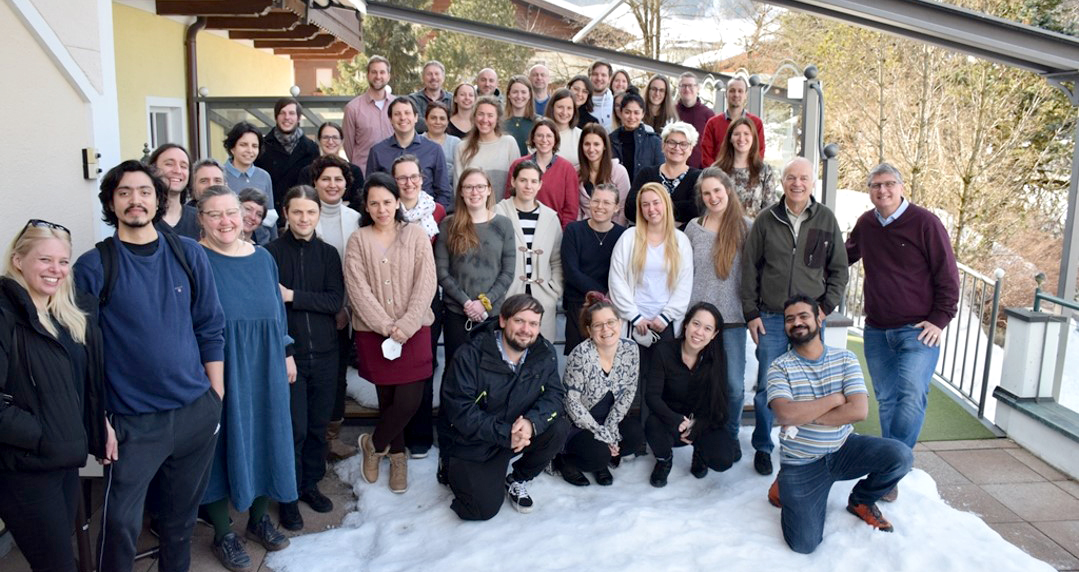Getting back together – the TERMIS Winterschool 2022
After a Covid-induced gap year and a two-months delay, the TERMIS Winterschool finally took place in March 2022 as ninth event in the internationally renowned series. Under strict Covid precautions, scientists were able to meet in beautiful Radstadt, Austria. The event was supported by the Society of the Advancement of Research in Shock and Tissue Regeneration and, of course, the Tissue Engineering and Regenerative Medicine International Society.
The event opened with an inspiring session on research “from bedside to bench” by political scientist Raffael Himmelsbach, co-director of the Ludwig Boltzmann Research Group: Senescence and Healing of Wounds (LBG SHoW). He talked about the translation of health issues into researchable problems and described translational concepts to avoid knowledge transfer becoming a one-way street from bench to bedside. To illustrate, two clinicians joined the session to present their medical innovation needs.
In a session on advanced strategies, chaired by Andreas Teuschl-Woller, professor at the University of Applied Sciences Technikum Vienna, the speakers took a close look at cell-therapeutics. They discussed factors currently in the way of broad application and suggested alternative cell-based strategies to overcome the hurdles of implementation, cost-effectiveness and reliability. Afterwards, participants were asked to draft and present their own project idea including one of the described advanced strategies.
No event on regenerative medicine could be complete without a session devoted to extracellular vesicles. Chaired by Wolfgang Holnthoner, head of vascular biology research at LBI Trauma and current president of the Austrian Society for Extracellular Vesicles (ASEV), the symposium ignited an active discussion on different levels of this hot topic. Cellular senescence was in the spotlight in the following session, chaired by director of LBI Trauma Johannes Grillari and PI of LBG SHoW Mikołaj Ogrodnik. A session on Simulation, Artificial Intelligence and Imaging Computational methods, chaired by Paul Slezak, head of BioImaging at LBI Trauma, gave insights on the potential of these cutting edge techniques in biomedical applications while also shining lights on current challenges. Last but not least, Peter S. Zammit and Philipp Heher from King’s College, London, chaired a session on the physiology and pathophysiology of striated muscle. They dealt critically with recent advances and current open questions and discussed the lack of adequate disease models for pre-clinical research.
Central to every Winterschool is also the spirit of connection, of finding likeminded people and discussing new exciting research idea in a stimulating environment. May it be during the combined poster and wine-tasting session, in the spa area or on the slopes, participants’ feedback highlighted the great value they have gained from extending their network. Finally, an impromptu course on cross-country skiing, held by Andreas Teuschl-Woller, as well as the traditional sledge race, helped bring the Austrian winter feeling, so long missed during the pandemic, back into everyone’s heart.

